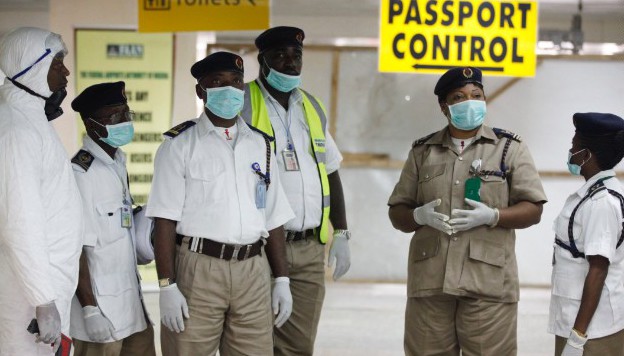
The chance that a person with Ebola will spread the disease on an airplane is small, according to a new statement from the World Health Organization.
That’s because, unlike viruses that cause the flu or a cold, the Ebola virus cannot spread through the air, WHO said.
“The risk of transmission of Ebola virus disease during air travel is low,” the statement said. “Transmission requires direct contact with blood, secretions, organs or other body fluids of infected living or dead persons or animals, all unlikely exposures for the average traveler.”
In addition, people with Ebola who don’t yet have symptoms are not contagious, and once symptoms develop, infected people usually feel too sick to travel, the statement said.
The current Ebola outbreak, which first caused cases in December 2013, has killed at least 1,350 of the more than 2,400 people infected to date in Guinea, Sierra Leone and Liberia, according to WHO. Scientists think they’ve traced the first case back to a two-year-old child who contracted the virus near the border area in Guinea.
The risk that a person traveling to Guinea, Sierra Leone or Liberia will become infected with Ebola, and then develop the disease after they return to their home country, is also low, according to WHO.
However, countries worldwide are still on high alert. Currently, there are two U.S. citizens — in California and New Mexico — in isolation units awaiting test results to confirm whether or not they have Ebola virus. That’s in addition to the two American aid workers with Ebola who were brought back to the U.S. to receive treatment at Emory University Hospital.
Most Ebola transmission happens when friends or family members take care of a person who is sick with the disease, or when people do not follow preventive measures during funeral preparations or burial ceremonies, the statement said. Health care workers who have unprotected contact with Ebola patients are also at higher risk of infection.
Countries with Ebola cases are conducting screenings at airports to check passengers for fever — a symptom of the disease. Any person with symptoms of Ebola should not be allowed to travel, unless they are part of a medical evacuation, the statement said.
While the WHO says the risk is low, we do know it is possible for Ebola to spread via air travel — in fact, that’s how the virus reached Nigeria. No cases had been reported in Nigeria, Africa’s most populous country, until Nigerian-American Patrick Sawyer flew to Lagos after caring for his sister, who died of the Ebola virus in Monrovia. Sawyer later died of Ebola, but not before infecting numerous health care workers, at least five of whom have died.
Currently, WHO does not recommend any ban on international travel or trade. Screening incoming passengers is also not recommended in countries that do not share a border with Ebola-affected countries, WHO said.
The Centers for Disease Control and Prevention has advised U.S. residents to avoid nonessential travel to Sierra Leone, Guinea, and Liberia.
